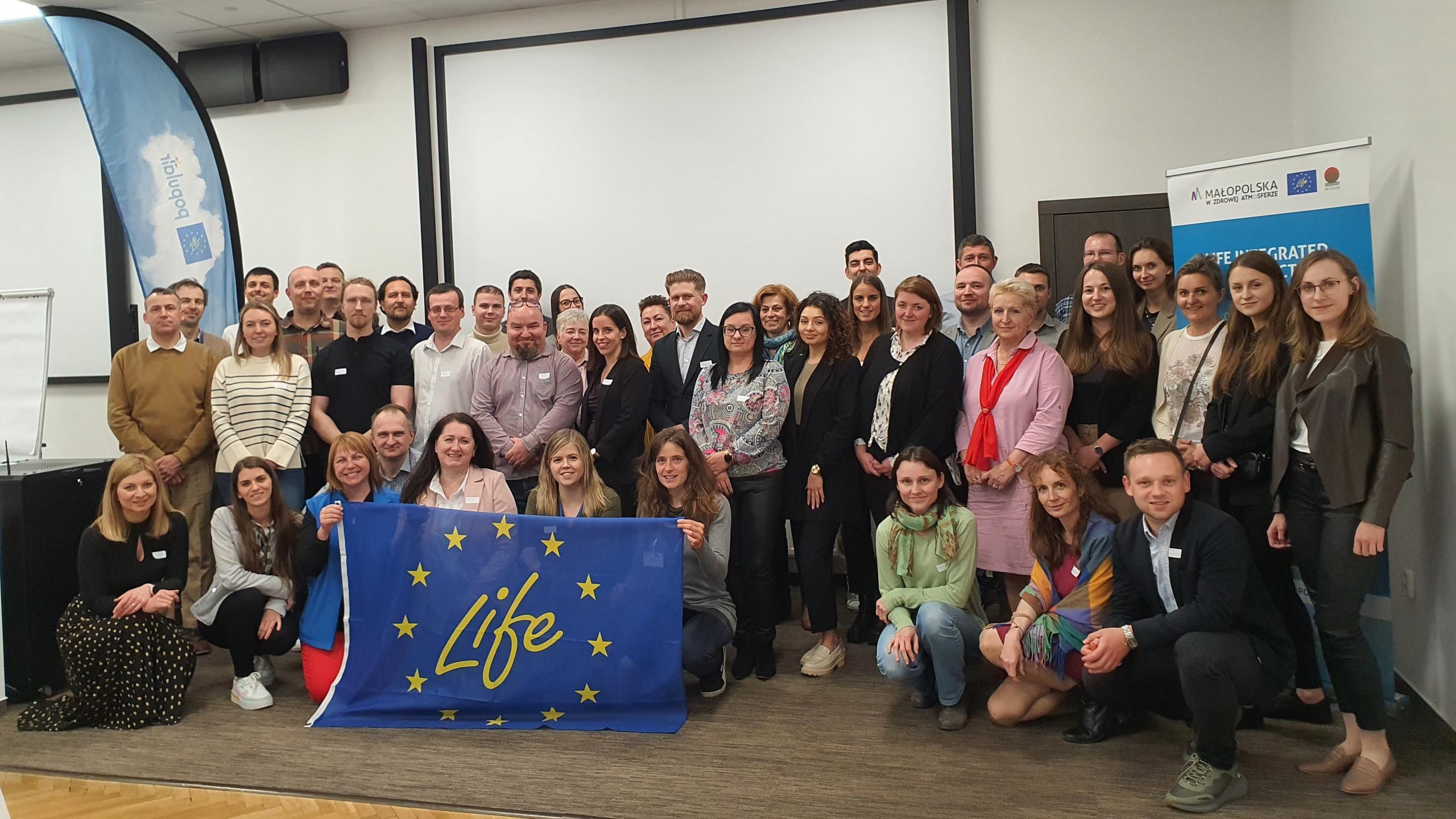Trilateral workshop on air quality

Countries in the Central European region face similar air pollution problems, making international exchange of experience key to the successful implementation of LIFE Integrated Projects (IPs) co-funded by the European Union to improve air quality.
This was the aim of the trilateral workshop organised by POPULAIR LIFE IP in Slovakia, which took place in Piešťany, on 17-19 May 2023. Experts from HungAIRy LIFE IP in Hungary and Małopolska LIFE IP in Poland participated alongside the hosts.
Slovakia has been under investigation for exceeding the limit/target values for the protection of human health since 2009 due to non-compliance with the the Ambient Air Quality Directive. The LIFE IP activities aim to facilitate the implementation of air quality plans in Slovakia by strengthening the capacity and competence of regional and local authorities and promoting air quality measures. The project seeks to implement concrete air quality measures, while supporting education, communication and monitoring activities through the establishment of a national network of air quality managers.
The MAŁOPOLSKA LIFE IP project "Implementation of the Air Quality Plan for the Małopolska Region" addresses severe air pollution in the Malopolska region, in southern Poland. The main source of air pollution is obsolete solid fuel boilers in households. The project focuses on implementing an air quality plan for Lesser Poland by replacing old boilers, modernising heating systems, and improving the energy efficiency of buildings. The project includes creating a network of environmental managers, operating a regional training and knowledge-sharing centre, organising awareness-raising campaigns, and developing tools to model the spread of air pollution. The project aims to reduce emissions, raise awareness and promote local and international cooperation.
HungAIRy LIFE IP aims to improve air quality in 10 Hungarian municipalities across 8 regions. This involves biannual reviews of air quality plans, establishing new air quality monitoring stations, developing emission databases, modelling the impact of air quality measures on air quality, comprehensive awareness-raising activities, and creating a national network of experts and consultants in the field of eco-management. The project also promotes good practices in crop and livestock production to optimise the firewood supply and reduce PM10 emissions from agriculture.
At the workshop, participants presented their main achievements, exchanged experiences and shared future plans. Discussions covered national and regional air quality legislation, air quality monitoring and modelling methodologies, and funding opportunities for air quality measures. Round-table discussions focused on awareness-raising, air quality plans, monitoring information and examples of good practice.
On the last day of the event, participants visited the sorting plant of the deposit-fee packaging collection system in Kočovce. The collection system for PET bottles and aluminium beverage packaging was started in Slovakia on 1 January 2022. They observed the processing of packaging waste from collection points and intermediate warehouses. At the sorting centre, an optical sorting line sorts materials by type and colour, and the sorted plastic and metal materials are baled for recycling. The deposit-fee collection system helps collect better quality material for new packaging, saving natural resources, reducing energy use, and lowering CO2 emissions.
Source: Herman Ottó Institute Nonprofit Ltd.